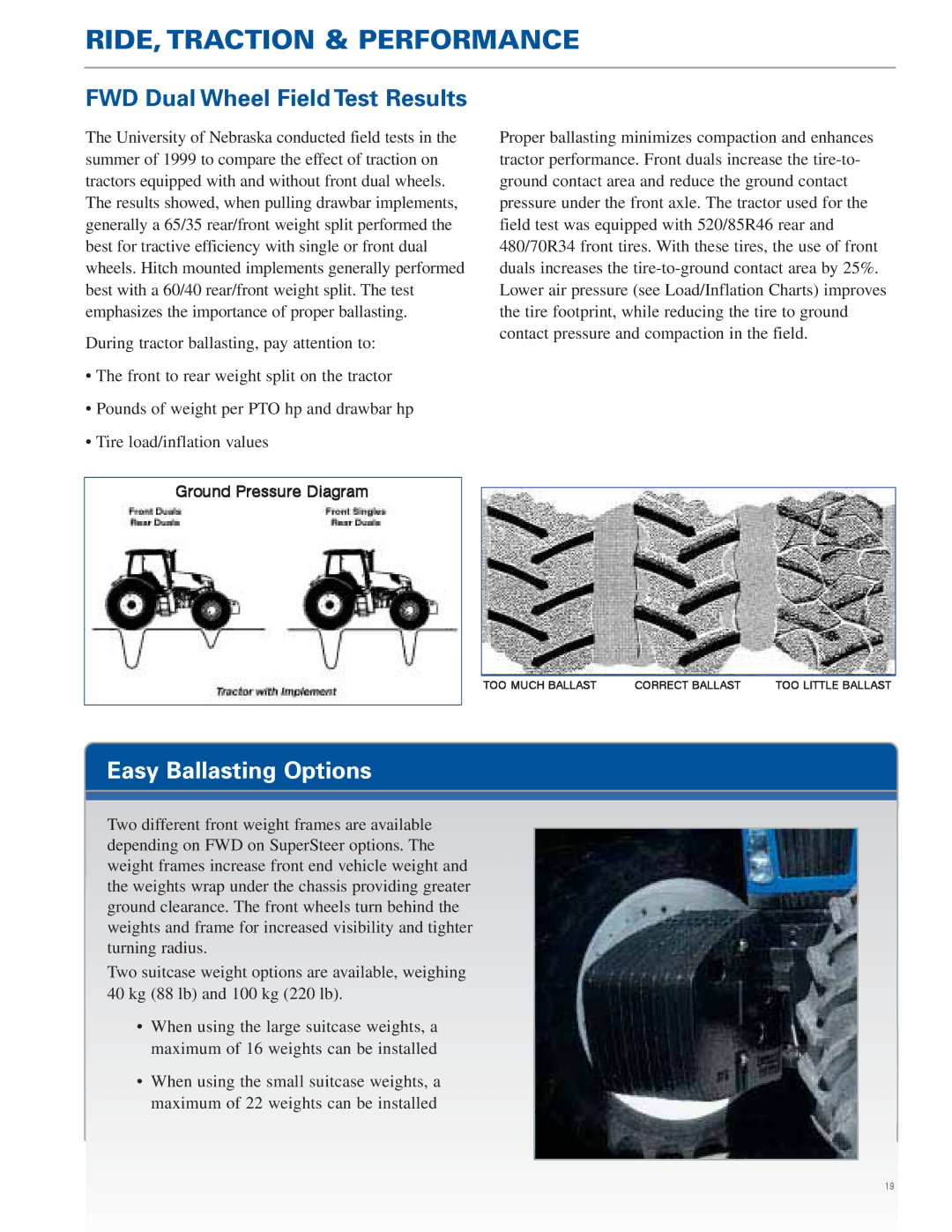
RIDE, TRACTION & PERFORMANCE
FWD Dual Wheel Field Test Results
The University of Nebraska conducted field tests in the summer of 1999 to compare the effect of traction on tractors equipped with and without front dual wheels. The results showed, when pulling drawbar implements, generally a 65/35 rear/front weight split performed the best for tractive efficiency with single or front dual wheels. Hitch mounted implements generally performed best with a 60/40 rear/front weight split. The test emphasizes the importance of proper ballasting.
During tractor ballasting, pay attention to:
•The front to rear weight split on the tractor
•Pounds of weight per PTO hp and drawbar hp
•Tire load/inflation values
Proper ballasting minimizes compaction and enhances tractor performance. Front duals increase the
Easy Ballasting
Two different front weight frames are available
depending on FWD on SuperSteer options. The
weight frames increase front end vehicle weight and
the weights wrap under the chassis providing greater
ground clearance. The front wheels turn behind the
weights and frame for increased visibility and tighter
turning radius.
Two suitcase weight options are available, weighing
40 kg (88 lb) and 100 kg (220 lb).
•When using the large suitcase weights, a maximum of 16 weights can be installed
•When using the small suitcase weights, a maximum of 22 weights can be installed
